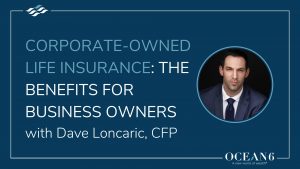The financial industry in Canada is confusing. It’s challenging to find the right financial advisor and with so much information and access to technology, the options are endless.
In this blog, we will look at the different types of financial advice available to us and which financial advisor you should go to based on your needs.
Types of Financial Advisors
Investment Advisors
Most people tend to think a financial advisor is someone who manages your money. While this can be true, not all financial advisors specialize in investments alone.
Investment advisors (also known as money managers) give advice on investment portfolios. They help you navigate the confusing landscape of the market while primarily dealing with mutual funds, stocks, and ETFs. After assessing your risk tolerance, they put together an appropriate portfolio for you.
Investment advisors can work anywhere from big banks like TD Bank, large investment firms such as Canaccord, to smaller boutique firms.
If you’re looking for investment advice, this is who you should go to.
Just note that most investment advisors are paid a commission based on how much money you invest with them. Before you commit, get completely clear about the fee structure and make sure there’s no chance of any hidden fees.
(Wanting to use your corporation to invest and save tax? Here are 12 investing FAQs every business owner needs to read.)
Insurance Specialists
Alternatively, some financial advisors refer to themselves as insurance specialists or financial advisors with insurance licenses.
Insurance specialists can advise and sell you insurance products, but it’s not just limited to life insurance or critical illness insurance. They can also manage your money through insurance-based investment options, known as Segregated Funds.
If your goal is to ensure that you and the financial well-being of your family are well-protected, seek an insurance specialist.
Many insurance advisors offer up their advice for free in hopes that they can make a commission on products you purchase from them.
Financial planners
Finally, you have financial planners. In recent years, there’s been more demand in the Canadian financial industry for more transparency. People are seeking standalone, unbiased financial advice unrelated to money management or buying insurance.
There’s a greater understanding that paying for financial advice means people can rely on their financial planner to have their best interests at heart rather than selling them a product or a strategy in return for a commission.
(Not sure when to hire a financial planner? Here are some signs it’s time to hire one.)
Although it’s important to sort out the different types of financial advisors, it’s even more important to make sure they have the appropriate credentials. A proper financial planner has the designation; Certified Financial Planner®, CFP®, for short, and instead of selling products, they’ll build you a detailed financial plan that considers the full financial picture.
6 Key Elements of Any Financial Plan
All good financial planners will address these six key elements of a financial plan:
- A clear cashflow strategy that ensures you can reach your goals while maintaining your desired lifestyle
- A deep understanding of your debt situation and whether or not it’s structured in the most efficient way
- An insurance plan that protects your family’s ongoing needs
- Investments that are risk-appropriate for you to reach your goals
- A clear roadmap to financial freedom and a legacy plan that will effectively transfer wealth to your loved ones
- Clever tax strategies to free up money to put toward your goals
Why free financial advice can actually cost you more money
The most transparent structure is a fee-for-advice because like an accountant or a lawyer, you pay for a financial planner’s years of knowledge and their fiduciary duty to you.
Fee-for-advice financial planners are legally obligated to make recommendations in their client’s best interests. They cannot sell products or strategies that contradict their client’s goals and needs.
On the other hand, commission-based financial advisors are not required to be fiduciaries. They have no legal obligation to their clients and can sell products to their clients based on what they “believe” is suitable for them.
You risk getting advice that is not in your best interest when you work with commission-based financial planners, which can cost you more money than working with a fee-for-advice financial planner.
(Here’s more about the financial advice you get when you pay for it)
The Financial Advice You Recieve from Ocean 6
Free advice may cost you more money than you realize because you don’t know about the alternative opportunities that are not being shared with you.
As Warren Buffet once said, price is what you pay; value is what you receive.
If you have a specific need for advice on just investments or insurance, you should look for an advisor specializing in those areas.
At Ocean 6, we are Financial Planners first and investment and insurance specialists second. We use a fee-for-advice model, and our service to you is beyond just a financial plan. We are with you every step of your financial journey, implementing innovative strategies to achieve your goals.
So get clear on what advice you are looking for and hire the right financial advisor to do the job.
If you’re a business owner looking for unbiased advice to make the most of your corporate structure and reach your goals faster, book a call today.












